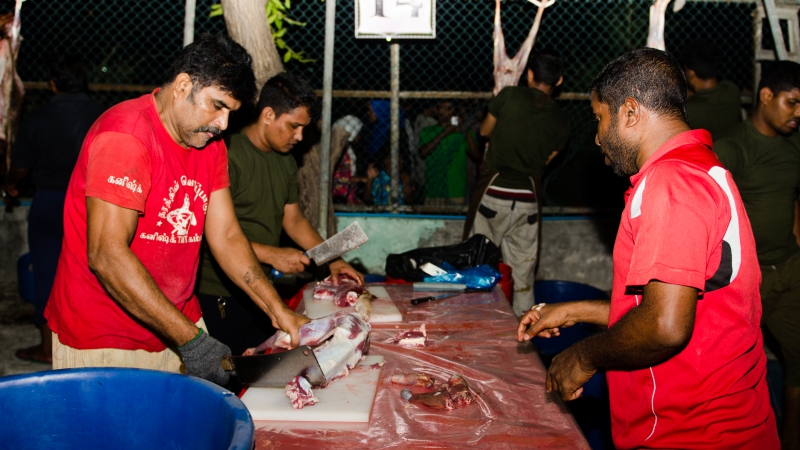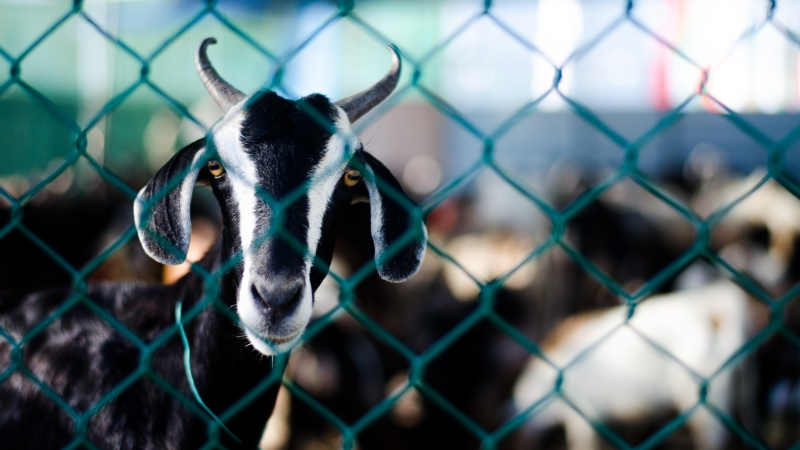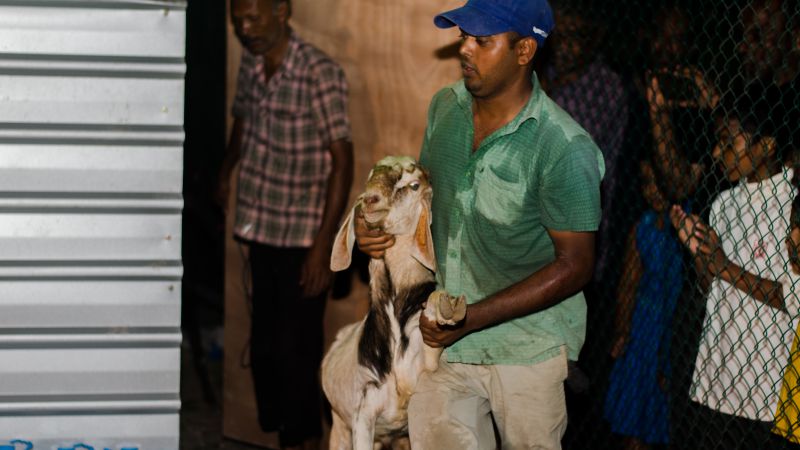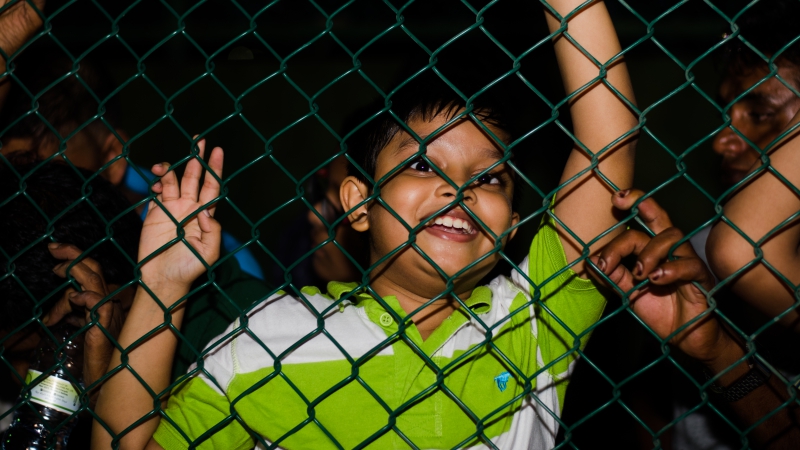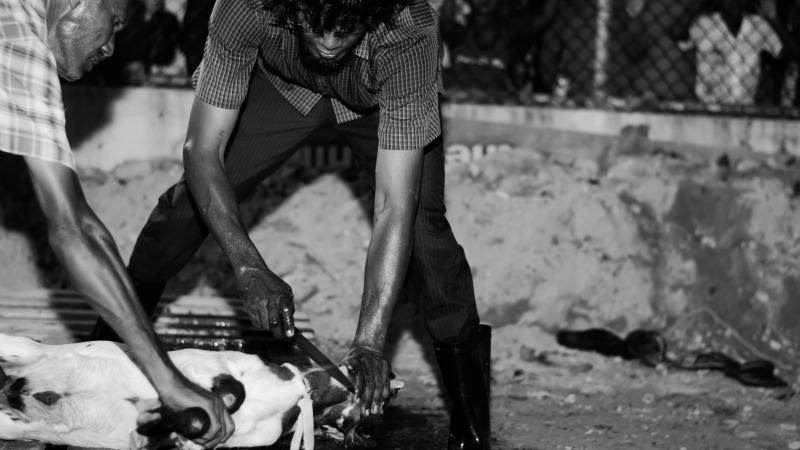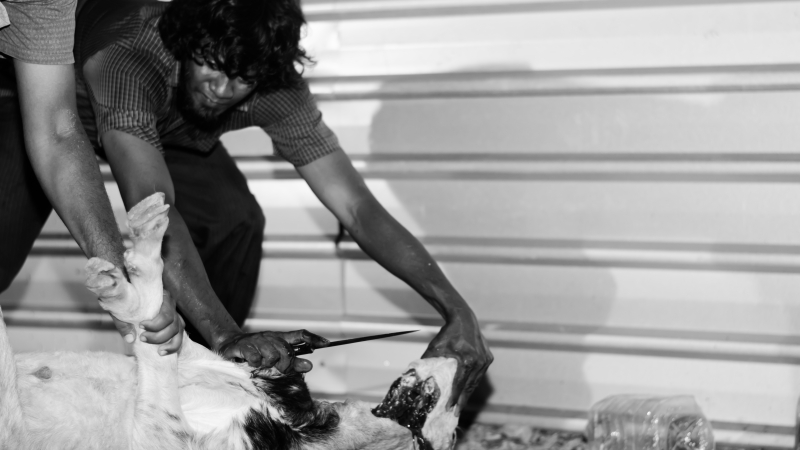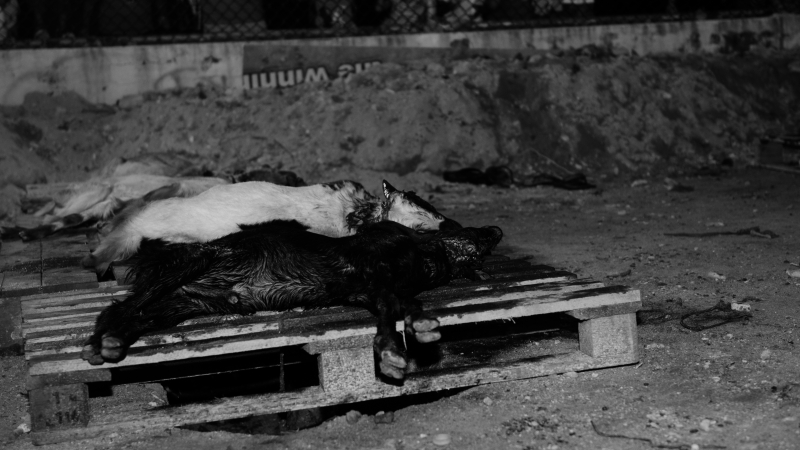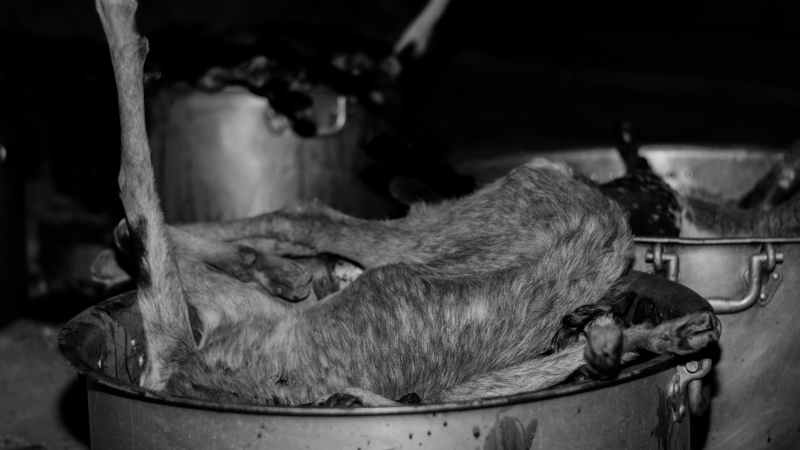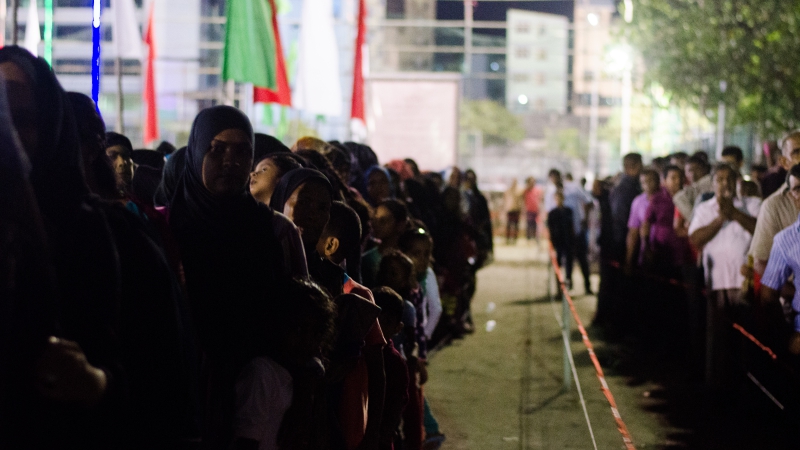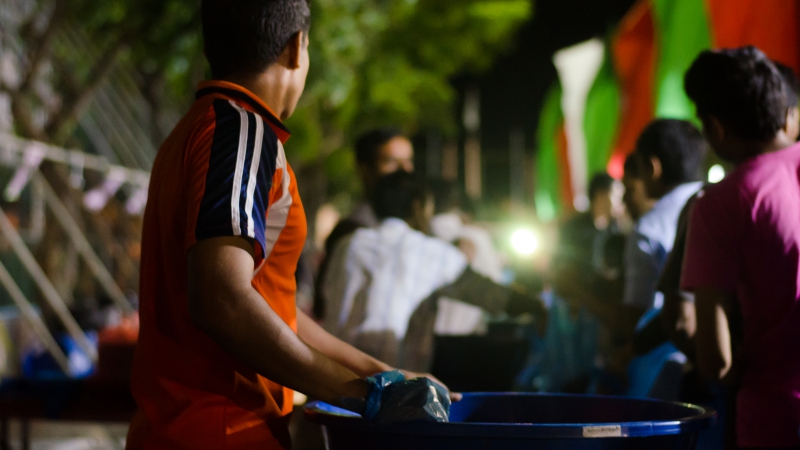Hundreds of goats were sacrificed in a public ceremony in Malé on Thursday evening in a government-organised celebration of 50 years of independence.
Tag: sacrifice
Hundreds of goats sacrificed to mark independence from the British
Hundreds of goats were sacrificed in a public ceremony in Malé on Thursday evening in a government-organised celebration of 50 years of independence.
150 goats to be sacrificed in public ceremony
One hundred and fifty goats will be sacrificed in a public ceremony in Male’ this evening in a government-organised celebration of 50 years of independence.
However, the former Islamic minister and some other scholars have spoken out against the event, labelling it irreligious.
The ceremony is the first time the government is involved in goat sacrifice events, which have become increasingly popular in recent years. It comes ahead of Independence Day on July 26.
Locals in Male’ have been receiving calls from the campaign office of the ruling Progressive Party of Maldives (PPM) urging them to attend.
The goats will be slaughtered as alms to the attendees after Ishaa prayers and a special prayer of thanks. The event will begin at 6:45 pm at Maafannu stadium in the capital.
Ibrahim Muaz Ali, a member of the event’s organising committee, told a press conference yesterday: “We would like to invite all citizens to this prayer and also suggest bringing children of praying age to this event.”
Muaz said events will be held for schoolchildren to sing religious songs in honour of the occasion, while a special song will be dedicated to the event of alms and prayer. The imam will be Dr. Mohamed Shaheem Ali Saeed, the minister of Islamic affairs.
Abdul Majeed Abdul Bari, former Islamic minister and now a member of the opposition Maldivian Democratic Party, criticised the sacrifice.
“Even though we don’t know who keeps calling people to attend a prayer which includes alms, be cautious to not to attend such irreligious activities,” he said.
Sheikh Imran Abdulla, president of the conservative religious Adhaalath party, tweeted: “Slaughtering goats. Is it religious or political?”
Muaz rejected the criticism, saying: “This is not irreligious as some may define it. I have not heard of any scholar officially saying so either, but defining it this way is very disappointing.”
No government money will be used for the event, said Muaz, as it is being run in collaboration with businesses and religious groups.
Ablution facilities will be available from the stadium, but Muaz advised people to come fully prepared to avoid the long queues.
An Islamic NGO began the trend of slaughtering imported goats for Eid al-Fitr in 2010, but this is the first time the government has taken on the project. The animals are not indigenous to Maldives.
The goat slaughter is one of a series of events to celebrate the anniversary of the Maldives becoming independent from Britain in 1965. It had previously been a British protectorate since 1887.
Some 2,000 people including the vice president and criminal court chief judge swam from Villingili to Male’ last week in celebration of independence.
Maldives’ celebrates Eid with record number of goats sacrificed
This year’s Eid celebrations in the Maldives saw the holiday’s traditional prayers and feasting accompanied by a record number of goats slaughtered in the capital Malé.
The Islamic Foundation of Maldives (IFM) arranged for the importing and slaughter of over 175 goats on Thursday, a record number for a country in which this large-scale practice was uncommon just a few years ago.
Signs appeared around the capital in the days leading up to the holiday advertising the ‘uluhiya’, or slaughter – a word previously unfamiliar in the Dhivehi lexicon – providing a telephone number for anyone who wanted to join in the festivities.
A representative of the IFM explained that the organisation had surpassed its previous efforts this year after its founding in 2009.
“In 2010, we only had 20 goats. In 2011, we slaughtered 80 goats and two cows,” he explained.
“Next Eid we will slaughter a camel – this will be good for the public as it will be the first time this has been done.”
Combined with the activities of other Islamic organisations in the country – most notably the Jamiyyathul Salaf – the number of animals sacrificed came to well over 200.
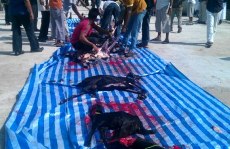 Traditional practice dictates that the animals be slaughtered by having their throats cut, before the body is drained of blood. After this, the animal is cut up with some meat divided amongst friends and family and some distributed to the poor and needy.
Traditional practice dictates that the animals be slaughtered by having their throats cut, before the body is drained of blood. After this, the animal is cut up with some meat divided amongst friends and family and some distributed to the poor and needy.
The foundation member explained that, owing to the relative affluence of the Maldives , it was difficult to determine needy individuals and so the meat was distributed to whoever was in attendance.
Local media reported that some meat was being sold for MVR 400 a piece (US$25), but the IFM member said he did not know about this, saying: “Selling [the meat] is not encouraged.”
He explained that, due to the practice being uncommon to the Maldives, Bangladeshis were employed to do the butchery after the animal was killed, although locals were given the opportunity to cut the animal’s throat themselves if they had paid for the animal first.
Goats are often kept in the Maldives’ smaller islands but are an unusual sight in the capital. They are often sacrificed in naming ceremonies.
“People who bought the animals were given the opportunity to slaughter them,” he said, explaining that the animals cost around MVR 3500-4000 (US$227 – US$260) each to purchase in Male, more than double their cost prior to shipping from India.
“When sacrificing, the condition is to kill it at once without damaging or hurting in any other way,” he said, adding that the animals were prevented from seeing the others being slaughtered and that they were adequately fed and watered before the sacrifice.
he said, adding that the animals were prevented from seeing the others being slaughtered and that they were adequately fed and watered before the sacrifice.
“I find it hard to watch,” he added, “but others come and watch it for entertainment.”
The animals were brought into the country three days prior to the sacrifice, being kept near to the petrol shed on the south of the island before being sacrificed on an adjacent plot of land.
The foundation member said that three goats had given birth after being brought to the country, making them unsuitable for sacrifice.
Those animals that were not bought and slaughtered by individuals were sacrificed on behalf of the foundation. The IFM then arranged for a large feast at the nearby Maafanu Madrassa for which 2,000 people were expected. Inclement weather on the day was blamed for the smaller attendance – estimated at around 1,200.
The act of sacrifice and the giving away of the meat – practiced throughout the Muslim world – is intended to symbolise the Prophet Ibrahim’s willingness to sacrifice his only son to show his obedience to Allah.
The IFM was founded with the stated aim of raising Islamic awareness and organising social activities within the Islamic framework in order to “ensure the religious and social development of each and every individual of Maldivian society,” according to its website.
The Maldives has embraced Islam with increasing fervour in recent years. The 2008 constitution saw the practice of Sunni Islam become mandatory for Maldivian citizens as well the establishment of a state ministry to handle Islamic affairs.
